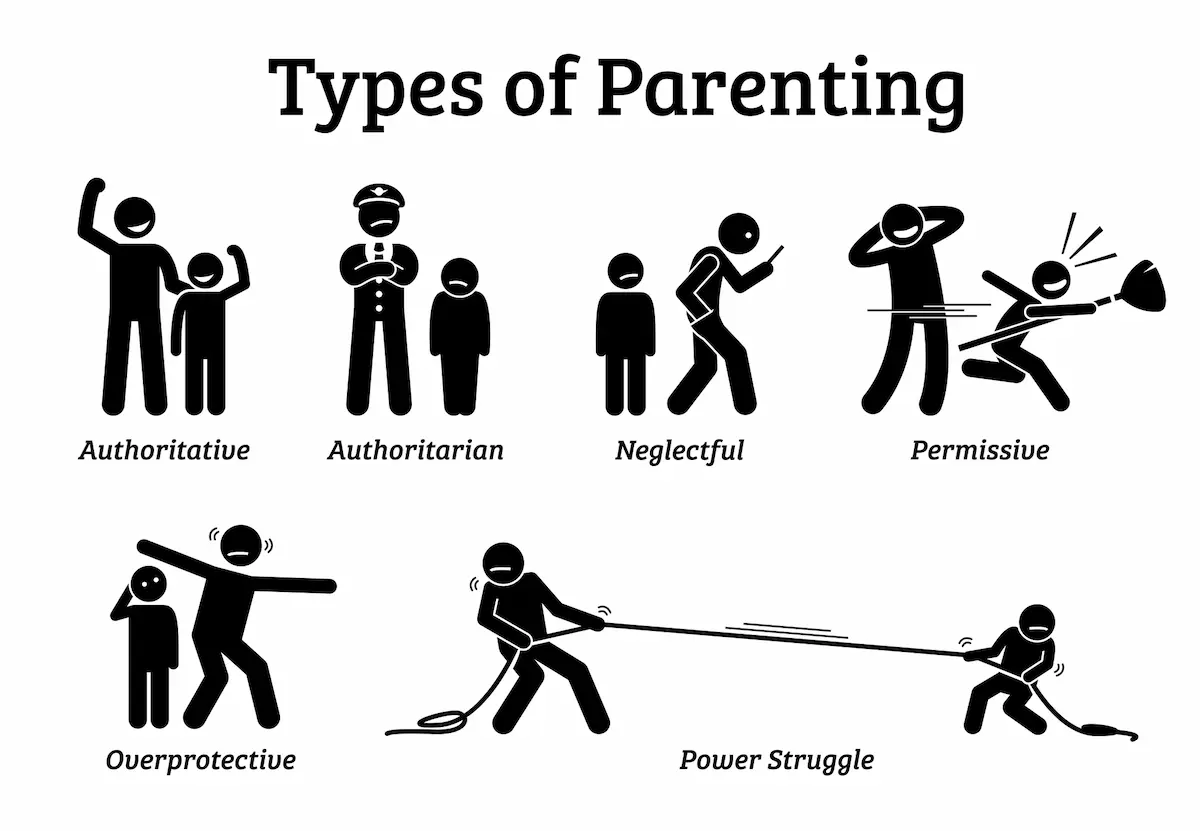There’s certainly no one-size-fits-all method for raising kids. Psychologists have done countless studies on the best parenting styles, yet people remain divided! My journey as a parent is ongoing and rewarding, but I sometimes come across terms like uninvolved parenting. What is the uninvolved parenting style, and how can you recognize it?
Uninvolved parenting practices continuous emotional detachment between the children and parents. It is hands-off, providing only the necessities like food, clothing, and shelter, while essentially expecting children to fend for themselves in terms of structure and emotional support. Parents are uninterested in their child’s school life and interests.
Parenting is essential to the social development, mental health, and well-being of a child. We’ll explore uninvolved parenting and the characteristics associated with that style.
Furthermore, we’ll compare it to popular parenting styles like authoritative, authoritarian, permissive, and free-range to get a better picture of what uninvolved parenting offers children (and parents).
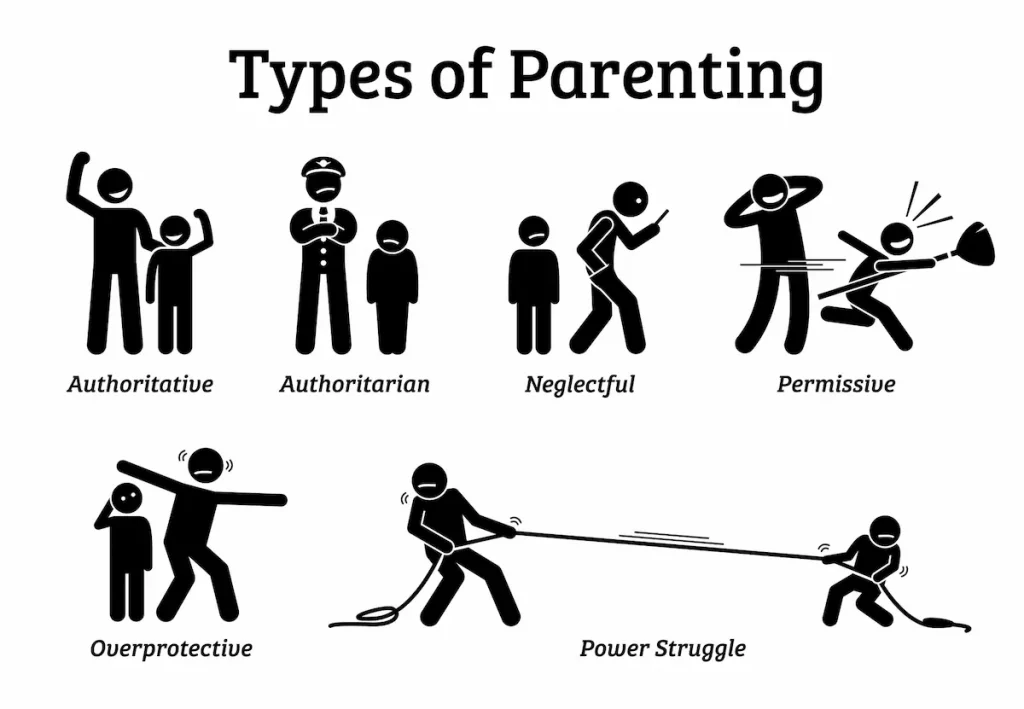
What Is Uninvolved Parenting?
Uninvolved parenting is a style of rearing kids that practices a perpetual pattern of continuous emotional distancing between the child and parent. Parents see to the child’s basic need for food, shelter, and clothing but let them make every big and small decision without any support or input from the parent.
With helicopter parenting being the most well-known & discussed method for rearing kids to date, it’s easy to see why uninvolved parenting, the complete opposite style of raising kids, has such a negative connotation.
The popular tv series Big Bang Theory has actress Christine Jane Baranski play the role of Beverly Hofstadter, the mother of Leonard Hofstadter. She is an excellent example of someone who practices uninvolved parenting, choosing to completely distance herself emotionally from Leonard to focus on her work.
Leonard and Beverly have a complicated relationship because he blames her for most of his insecurities as an adult. Consequently, lingering resentment between them makes it difficult for their relationship to develop further than a strictly biological connection.
Now, as a working parent, you can probably identify with being tired because work is stressful and tiring. There may be times when you decline an invitation to spend time with your children because you need a few minutes to yourself to wind down.
Even though it may bring guilt afterward, these actions are synonymous with uninvolved parenting. Remember, uninvolved parenting consists of a pattern of continuous emotional distancing.
Some common characteristics of uninvolved parenting include:
- Uninvolved parents have no innate desire to feed, hold, or play with their children. Given the opportunity, they will pass them along to someone else.
- Parents do not set boundaries like bedtime, dinner time, or how much time the child can spend watching television or playing video games.
- Uninvolved parents are uninterested and show little responsiveness when the child speaks about their day.
- When the usual gets established, and the child becomes older, the parent may not concern themselves with the places their child goes or what time they get home. Bringing home a bad report card is uneventful, and when the child shows clear signs of rebellion, the parent will not challenge it.
Uninvolved parenting remains very much a hands-off, detached, and do-it-yourself style of parenting that has earned itself the title of neglectful parenting.

What Are the Characteristics of Uninvolved Parenting?
Since uninvolved parents are emotionally detached, they respond poorly to the emotional needs of a child. Affection, guidance, and support are almost non-existent. They don’t set rules or expectations and demand little, often limiting their communication with the child to essentials only.
Uninvolved parenting is very distinct from the other parenting styles, making it relatively easy to spot. In essence, it revolves around two key aspects: Unresponsiveness and Undemanding.
Here are some practical examples of uninvolved parenting:
- Uninvolved parents treat their children according to a need-to-see basis. They provide just enough to get by (clothes, food, shelter) but don’t inquire about friends, school life, or personal problems.
- The uninvolved parent will not set rules and boundaries or have consequences for bad behavior. In the same breath, they do not give encouragement or praise for good behavior.
- Uninvolved parents see little value in family life and do not care much for family camps or beach days. Consequently, they will also skip school events and parent-teacher conferences.
- If a child raised a troubling concern with a bully at school, an uninvolved parent might belittle the child for being weak and tell them to toughen up. This response may be because they are indifferent to their emotions or too busy with work or other things to help with solutions or emotional support.
Interestingly, did you know that when a parent makes a habit of picking on one kid out of three siblings, they do so subconsciously, often unknowingly because that particular child has the same characteristics they despise within themselves.
Broken People Raise Broken Children
Uninvolved parenting is undoubtedly controversial for many parents, and its infamy makes it easy to pass judgment on those who practice it. Consider, however, that it may not always be a conscious choice.
You’ll often hear the elderly speak about how different things were in their day, including parenting. In truth, people will do what they believe is right and if their parents raised them to be emotionally distant, they will most likely raise their kids the same way.
From Stuart: There’s a saying in the therapy world within trauma work, “hurt people hurt people”, and I think the essence of the message applies here
Whether it’s right or wrong doesn’t matter. Instead, recognizing the source of the issue can help us to gain a new perspective and appreciation for our own upbringing. While blatant bad parenting is inexcusable, looking at the parents can often tell us a lot about why their kids receive little nurturing and discipline.
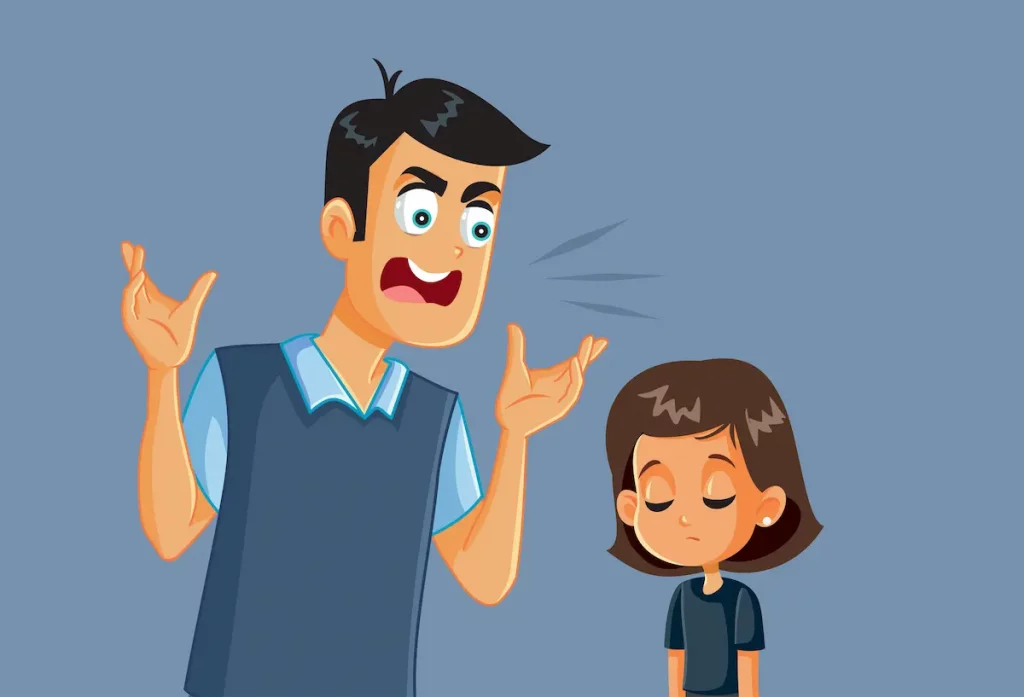
There Are Different Degrees of Uninvolved Parenting
Uninvolved parenting can have varying degrees of neglectfulness. Some parents are detached and unavailable for parent-teacher conferences and important school events, but choose to make an appearance for big family gatherings.
They may have people in their life that will hold them accountable and, as such, will attempt to save face and give the impression of a good parent in front of those people.
Other times parents will work 16 hours a day, six to seven days a week, and only see their child four or five hours a week. They are entirely in the dark about what is happening at school or with friends and must rely on a caretaker or the bi-yearly report to stay updated on their child’s progress.
When they’re home, they spend most evenings on the phone discussing the latest work project or the next day’s meeting, leaving the child to play on their own phone, watch tv, or isolate themselves in their room.
How Do You Recover from Uninvolved Parenting?
You can recover from uninvolved parenting by going to individual, group, or family therapy. You can read numerous online blogs to hear others’ stories and gain encouragement. To break the cycle of uninvolved parenting, taking local parenting classes and making a real effort to take a more active role in your child’s life works well.
After reading this far, you should know whether or not you fall into the dreaded uninvolved parenting category.
Self-reflection can be one of the hardest things we can do because it requires that we willingly become vulnerable, swallow our pride, and admit to strangers who may judge us harshly that we are wrong.
In truth, uninvolved parents typically come from dysfunctional families with histories of substance abuse, alcoholism, or other addictions leading to rejection from their parents. These issues can prevent parents from providing their children love, attention, and affection.
The good news is that the pride hurdle is the most challenging part. Afterward, many resources are available to help you recover your parenting style if you find yourself in the dark, uninvolved section of parenting.
The best part is that you’ll also positively affect those around you and your future relationships. Remember, there is no magic school, like Hogwarts, to teach us parenting – it’s an ongoing process!

Therapy Can Help You Overcome Uninvolved Parenting
You may be interested in taking up individual, group, or family therapy so that a therapist can help you work through the mental barriers that hinder your parenting.
Therapy is an excellent choice because it provides an external perspective and is familiar with techniques to spot problem areas and improve communication. They can soothe conflict management and teach you how to handle confrontation or past rejection.
By analyzing your responses, therapists can advise you on destructive behaviors causing a divide between yourself and your children.
They will help you to implement tools and systems to remedy the behavior while studying how each family member interacts with one another and provide meaningful feedback.
For instance, a therapist may recommend Child-Parent Psychotherapy (CPP) which acts as an intervention model for families where kids aged 0 – 5 experienced maltreatment, death, mental health issues, or exposure to domestic violence.
Parent-Child Interaction Therapy (PCIT) is another alternative for kids with behavioral problems. It occurs in a playroom where the child and parent play and the therapist observes behavioral patterns.
Parenting Classes Can Be a Fountain of Valuable Knowledge
Local parenting classes will allow you to meet other parents who may share your parenting difficulties. Furthermore, the instructors are experts in their field, and you’ll be able to ask them questions about the course material or your situation.
Schools, community colleges, libraries, hospitals, and other young couples are good places to start when looking for parenting classes.

Make An Effort and Get Involved in Your Child’s Life
Trust is a precious resource that is very hard to earn once you lose it. However, given enough time and sincerity, it will return, so the best way to start is to make a conscious effort to spend more time with your kids.
Listen to them and respond when they ask you something, no matter how insignificant it may seem at the time. Be careful, however, that you aren’t too heavy-handed or force your way into a specific area of their life.
If you do, you may do more damage and significantly delay the opportunity to participate. Instead, be patient; they will let you in when they are ready.
Differences Between Authoritative and Uninvolved Parenting
Unlike uninvolved parenting, authoritative parenting is the most responsive and demanding parenting style. Authoritative parents set clear rules while practicing healthy flexibility. Frequent communication stresses the importance of children expressing their emotions and opinions.
Here are some characteristics of authoritative parenting:
- Communication is a priority with authoritative parenting. Parents will explain why chores are essential to do and why they get done a certain way. Consequently, kids will fight back against authority but embrace it as the natural part of achieving a positive outcome.
- Since authoritative parents are very responsive, they assess their kids’ strengths and weaknesses and use them to set limitations and help them spot opportunities.
Differences Between Authoritarian and Uninvolved Parenting
Authoritarian parents remain highly responsive and involved in their child’s life, dictating their goals, values, and beliefs through emotional control and manipulation. It should not be confused with authoritative parenting, where the same is true but without emotional control.
The following characteristics are true for authoritarian parenting:
- As the authority, children need to adhere to and accept the parents’ rules, goals, and beliefs without question. The parents believe they know what’s best for their child’s future with little regard for their current social or emotional requirements.
- Authoritarian parenting utilizes a tough-love approach that disregards emotional and social needs, making this parenting style strict and cold.
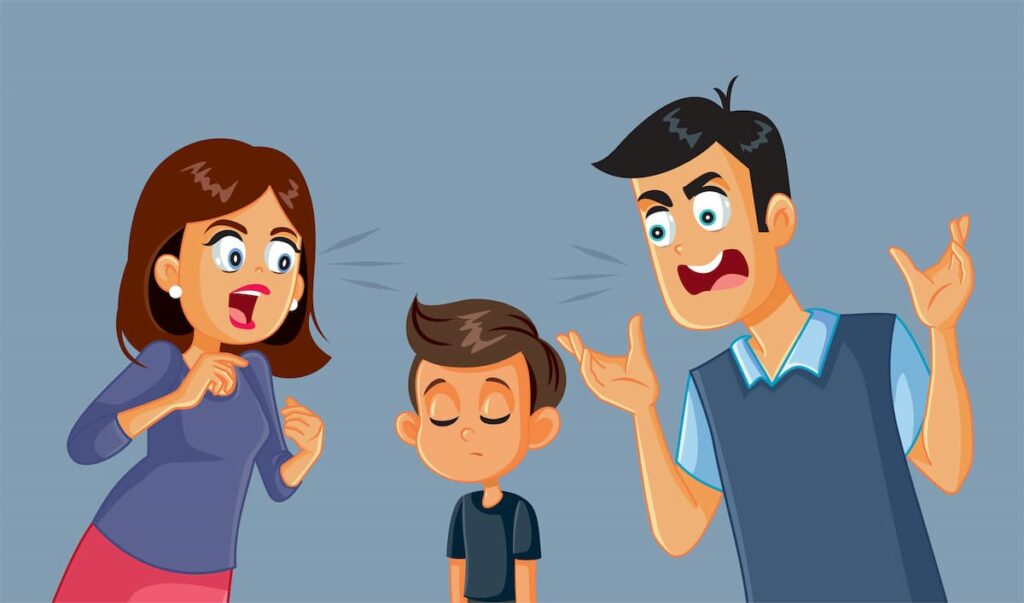
How are Permissive and Uninvolved Parenting Different?
Permissive parents demand little of their kids but have a high level of responsiveness. They provide affection, love, and support but refrain from offering guidance. They are easy-going and rarely set rules or boundaries, making them similar to uninvolved parenting in this regard.
You can identify permissive parents by the following characteristics:
- Permissive parents are very loving and affectionate towards their kids but don’t enforce strict rules because they believe kids should be kids. Consequently, they prioritize freedom over maturity and independence.
- There are no real consequences for missing deadlines, tardiness, or not doing homework.
How are Free-Range and Uninvolved Parenting Different?
Free-range parenting focuses on a hands-on approach, offering a lot of love and affection but ensuring that kids have enough freedom to experience the consequences of their actions. Uninvolved parenting is very hands-off and refrains from any emotional attachments.
You can recognize free-range parenting by these characteristics:
- Free-range parents focus on having their children develop an independent mindset. Parents will teach their kids that nothing is out of their reach, and that they can achieve something if they put in every effort.
- The parenting style places emphasis on responsibility. If the child is old enough to pack their lunch, but they don’t because there were too busy on their phone, the consequence is that they go hungry. If they don’t study for their upcoming exam, the result is a failure and possible embarrassment at school.
- Free-range parents will give their children essential tasks to fulfill that may have dire consequences for themselves or others and are designed to build character and independence. They may shop alone or walk home from school alone or with friends.
Does The Uninvolved Parenting Style Set Boundaries?
Uninvolved parents do not set boundaries, rules, or curfews, nor do they have expectations or allocate chores. The child gets food, clothing, and shelter and lives as a tenant rather than a family member. They don’t receive emotional or social support and live with maximum freedom.
Boundaries are important because they protect us by giving us the power to prevent bad things from affecting our lives and allow the good things inside. When a child does not have clear boundaries, they become insecure and often develop a high level of anxiety in social situations.
It will affect every area of a child’s life, from relationships to professional careers. It may be difficult for them to make friends or acquaintances, plus approaching their boss with a business problem or to enquire about a salary increase will prove very challenging.
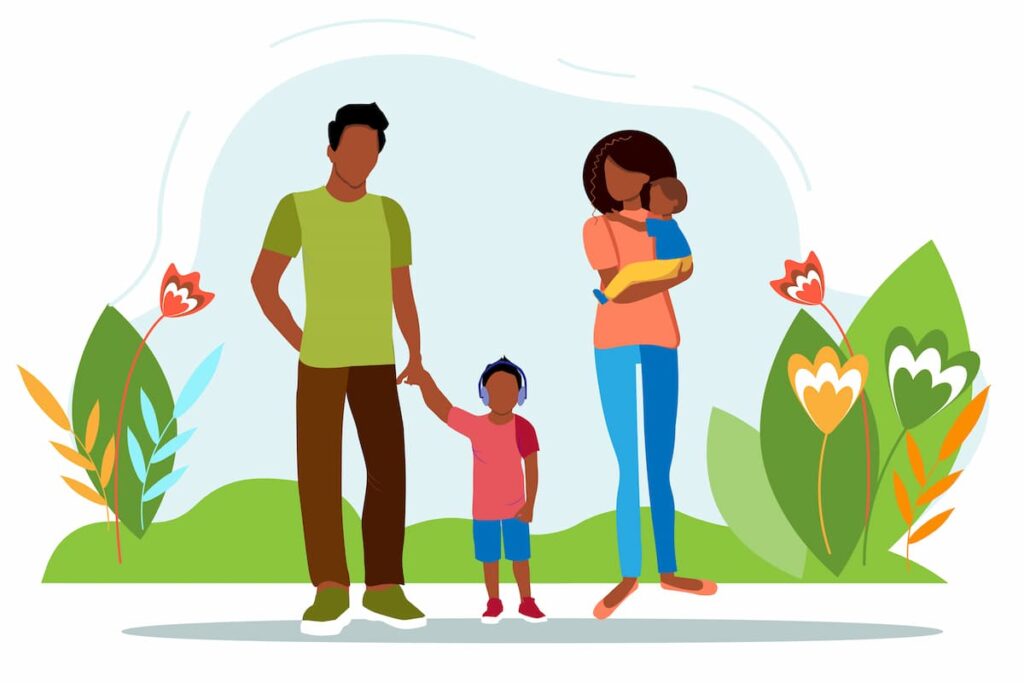
What Are the Longterm Effects of Uninvolved Parenting?
Uninvolved parenting affects a child’s self-esteem and emotional maturity and often lead to isolated personalities in social environments.
Uninvolved parents’ continuous state of emotional separation causes children to have difficulty in making emotional connections with others. The lack of love and attention at a young age is devastating, causing low self-esteem and the constant need for emotional validation in relationships.
The children do not learn about boundaries and social norms and, as a result, feel awkward and isolated in social environments.
The isolation can sometimes cause them to become very distant from their peers and thus a target for bullies at school. It may further spiral into depression and anxiety, which develops into a phobia known as social phobia.
Social phobia is an intense and overwhelming fear of judgment and negative evaluation from others. Most kids spend their entire lives fearing social interactions and, as a result, put up psychological walls to make themselves feel safe.
A study from the Journal of Adolescence in 2007 revealed that college kids who grew up in uninvolved and authoritarian homes found it more challenging to cope with homesickness than in authoritative and permissive families.
Despite having less homesickness, the college kids from uninvolved parenting families also struggled more with their feelings. As a result, the study revealed that a loving home with healthy emotional support has kids faring much better when they are away from home.
The kids will grow up with emotional detachment as a norm and, as such, will experience the same kind of relationship with their kids.
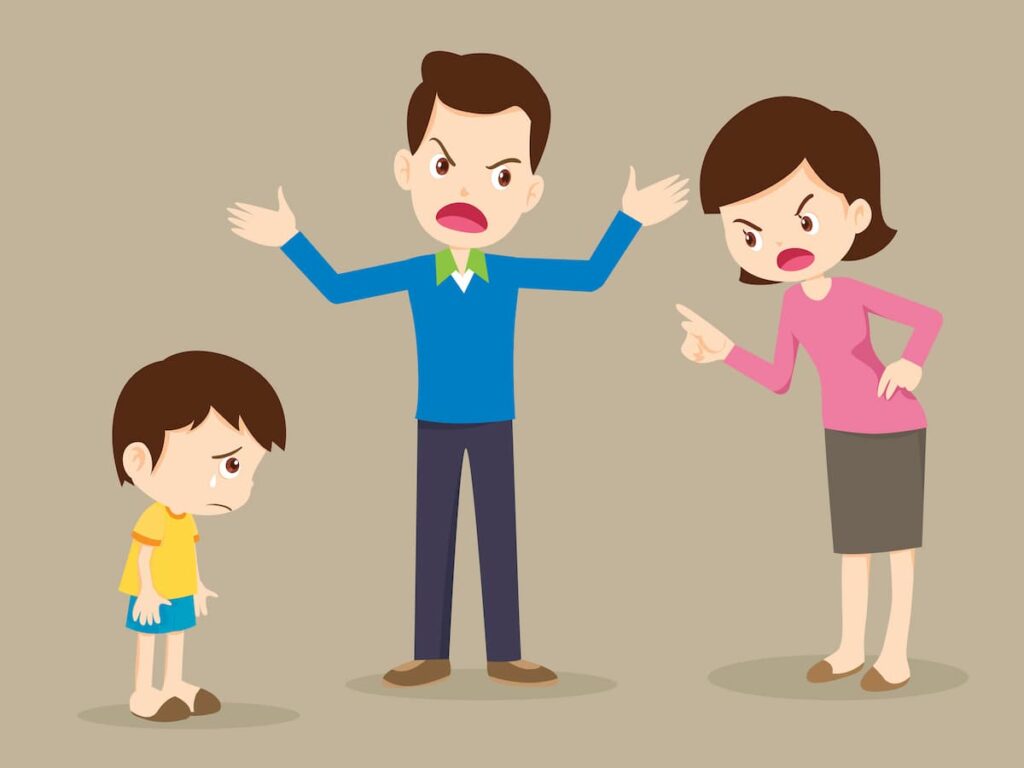
Conclusion
Uninvolved parenting practices a continuous state of emotional separation from the child. Parents provide necessities like food, clothing, and shelter but no emotional and relational support.
There are no rules or boundaries, and children must toughen up and fend for themselves.

